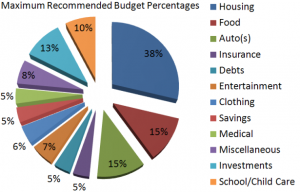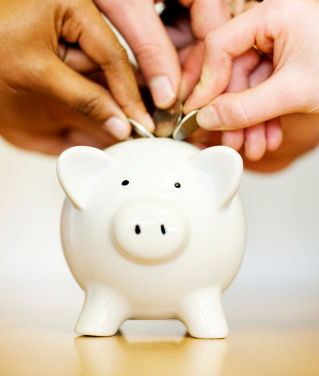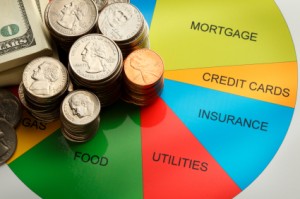 Good economics practice – positive ways of exchanging goods and services – is about the well-being, the livelihood, of the whole household.
Good economics practice – positive ways of exchanging goods and services – is about the well-being, the livelihood, of the whole household.
In the face of great economic and environmental challenges, the Christian practice of household economics calls on us to manage our private homes for the well-being and livelihood of the small planet home we all share.
For Christians, the move that is faithful is not from the material to the spiritual but rather from materialism to incarnation.
What are you doing as individuals or as a [community]:
To aid those in need of material help?
To create a social and economic system which will function as to sustain and enrich life for all?
Do you keep to simplicity and moderation in your speech, your manner of living, and your pursuit of business?
~ Quaker Query
Contentment Prayer
Lord, help me to be grateful for what I have,
to remember that I don’t need most of what I want,
and that joy is found in simplicity and generosity. Amen.
~ Adam Hamilton, Enough
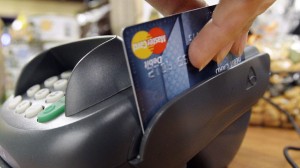 Cut to a bare minimum the weekly/monthly amount of time you spend shopping. Agree as a group to cut the time you spend shopping, browsing through catalogs or in bookstores, going to the mall, planning purchases, Internet shopping, to as little as you possibly can. Later, compare notes, revise the experiment and try again. What do you miss? What needs go unmet?
Cut to a bare minimum the weekly/monthly amount of time you spend shopping. Agree as a group to cut the time you spend shopping, browsing through catalogs or in bookstores, going to the mall, planning purchases, Internet shopping, to as little as you possibly can. Later, compare notes, revise the experiment and try again. What do you miss? What needs go unmet?
Try for a week to plan your meals around ONLY what you already have in your pantry and refrigerator and freezer. Make substitutions; eat what you have on hand; try not to buy items for a specific menu. What does this exercise help you to notice about your patterns of consumption?
Plan a Simple Living Party. Invite everyone attending to bring wholesome food to share and something to perform: a poem to read, a song to sing, a story to tell, a kids’ book to read aloud, puppets.
Try for a month to walk or ride a bike anyplace you have to go that is less than two miles away. Is this possible where you live? What obstacles do you encounter? Do you need to advocate for safer or more walking/biking paths in your town in order to be able to do this?
Review your checkbook and credit card receipts. Divide the month’s expenditures into three categories: essential, nonessential, and in-between or unsure. Circle any surprising entries. What does this list teach us about where our treasure lies?”
Try doing dishes as a way of praying. What do you notice when you do a “chore” this way?
“To my mind, the idea that doing dishes is unpleasant can occur only when you aren’t doing them. Once you are standing in front of the sink with your sleeves rolled up, and your hands in the warm water, it is really quite pleasant. I enjoy taking my time with each dish, being fully aware of the dish, the water, and each movement of my hands. I know that if I hurry in order to eat dessert sooner, the time of washing dishes will be unpleasant and not worth living. That would be a pity, for each minute, each second of life is a miracle. The dishes themselves and the fact that I am here washing them are miracles! In this light, no boundary exists between the sacred and the profane. I must confess it takes me a bit longer to do the dishes, but I live fully in every moment, and I am happy.”
– Thich Nhat Han, Peace is Every Step: The Path of Mindfulness in Everyday Life
Turn off the sound whenever a commercial comes on TV. What do you notice about your attention to the commercial when you can’t hear it? Ask yourself (or a child watching with you), “What does the maker of this commercial want from me? How do I want to respond?”
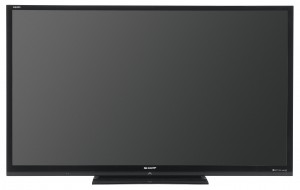 TV – what, when, and where? In your household, begin asking not only what should and should not be watched on TV, and when, but where the TV should be located. Some families will not place the TV in an eating area or in parts of the home where they would otherwise be in conversation with each other. Resist giving every family member a separate TV.
TV – what, when, and where? In your household, begin asking not only what should and should not be watched on TV, and when, but where the TV should be located. Some families will not place the TV in an eating area or in parts of the home where they would otherwise be in conversation with each other. Resist giving every family member a separate TV.
Divest yourself of things you don’t use. Go through closets and garages to find every item you haven’t used in a year and donate it to an organization or recycle it. Then, don’t buy anything for a month. If you see something you want, put it on a list to wait until the month is up. What happens at the end of the month? Do you still really want the things on the list by the time the month is over?
Covenant together with yourself, family, friends or church not to spend money on the Sabbath.
Consider environmental tithing, encouraging congregational members to reduce by one-tenth the amount of power and water used in homes and houses of worship.
Begin a mutual aid support group. A group of young professionals in a church discovered that the potential of each of their lives was hampered by low-grade but real economic anxiety. They decided to contribute to a common fund that could be used to help support any one of them who took an economic risk in order to enhance the quality and contribution of his or her life. Even if they didn’t have to use the fund, it freed them up to take risks they wouldn’t otherwise have taken.
Try limiting phone calls to 5 minutes, especially with people who tie you up on the phone for long stretches. Sometimes let the message machine take the call. Start with deciding certain times NOT to answer the phone. Say a polite yet firm “no” to telemarketers, and request to be removed from their lists.
Plan (or imagine) an overnight retreat or camping trip using no electricity. What electronic conveniences would you have to do without? What would you do for cooking? Light? Games? Music? What would be the most fun about such a trip?
source: practicingourfaith.org

